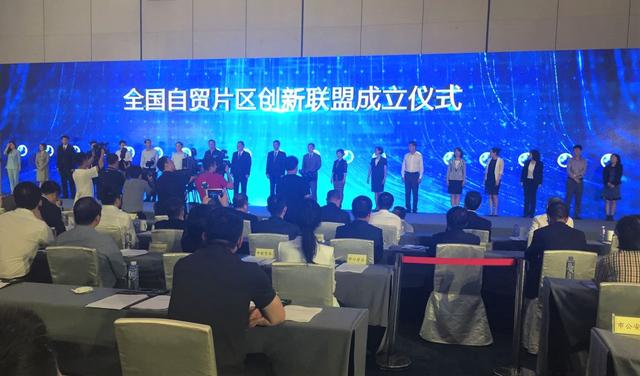Think tank service platform put online
The National Free Trade Area Innovation Alliance Think Tank Service Platform was put online to promote exchanges among the country’s free trade zones and areas Friday morning at an inauguration ceremony at Qianhai Enterprises Dream Park.

Wang Jinxia, deputy director of Qianhai Cooperation Zone Authority, attended the ceremony, at which Qianhai Institute for Innovation Research signed two cooperation deals with the Beibei area of China (Chonq-qing) Pilot Free Trade Zone and Jiangxi Ganjiang New Area.
The National Free Trade Area Innovation Alliance Think Tank Service Platform is designed to serve as a bridge to facilitate communications among the free trade zones and areas across the country. It will conduct innovative research and assessment, as well as organize training and exchanges on innovation.
Innovative achievements in the free trade zones and areas will be shared on the service platform, so the member think tanks can focus on the key issues that the free trade zones and areas will face in their future development and put forward relevant suggestions. The think tank service platform will also help promote institutional innovation, technological innovation and application innovation among all free trade zones and areas across the country.
The service platform now boasts 11 high-level think tanks, including the credit research center of Chinese Academy of International Trade and Economic Cooperation under the Ministry of Commerce, Economics and Management School of Wuhan University and the HSBC Financial Research Institute at Peking University.
The think tanks applauded the establishment of the service platform, which they said will provide a channel for the free trade zones and areas across the country to learn about achievements and precious experiences from each other as each of the free trade zones and areas has its own strengths and distinct development missions.
Song Min, head of the Economics and Management School of Wuhan University, said there are common issues that all free trade zones and areas will face during economic development, such as the business environment, tax reduction policies and how to improve government services.
“Qianhai has been a leader in institutional and policy innovations,” Song said, adding that Qianhai has taken the lead in rule-making, transparency in government affairs and dispute resolution, compared to the other free trade zones and areas in China. “This is precious experience that should be shared with others on the service platform.”
Song said he hopes more think tanks from Hong Kong will join the platform.